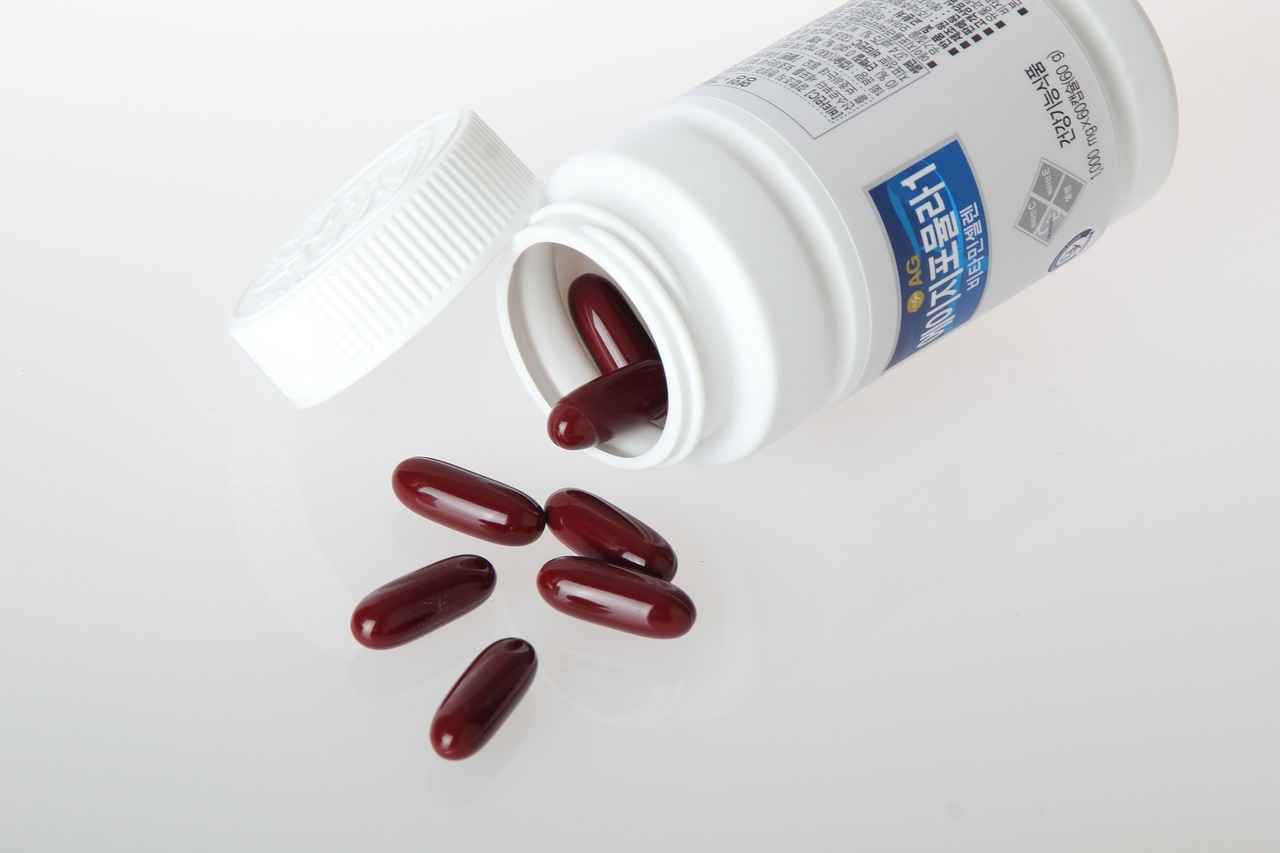This article delves into natural remedies and practical tips for managing gingivitis, a prevalent gum disease that can lead to serious oral health issues if left untreated. By utilizing simple, natural solutions, you can enhance your oral hygiene and prevent further complications.
Gingivitis is characterized by inflammation of the gums, primarily caused by the accumulation of plaque—a sticky film of bacteria. Common symptoms include redness, swelling, and bleeding during brushing or flossing. If not addressed promptly, gingivitis can progress to more severe periodontal diseases, leading to tooth loss. Understanding its causes, such as poor oral hygiene, smoking, and hormonal changes, is vital for effective management.
There are several natural remedies that can aid in alleviating the symptoms of gingivitis:
- Saltwater Rinse: A simple solution that helps reduce bacteria and soothe inflamed gums.
- Essential Oils: Oils like tea tree and peppermint have antibacterial properties beneficial for gum health.
- Herbal Solutions: Herbs such as aloe vera and chamomile can provide anti-inflammatory benefits.
A saltwater rinse is an effective home remedy. It can help reduce bacteria, soothe inflamed gums, and promote healing. This simple solution is an excellent first step in managing gingivitis.
To prepare an effective saltwater rinse, dissolve half a teaspoon of salt in a glass of warm water. Rinse your mouth for 30 seconds, then spit it out for optimal results.
For best results, use a saltwater rinse twice a day, especially after meals, to help combat bacteria and soothe your gums, aiding in the healing process.
Maintaining proper oral hygiene is essential for preventing and treating gingivitis. Effective brushing and flossing techniques, combined with regular dental check-ups, can significantly improve gum health.
Using a soft-bristled toothbrush and gentle circular motions can effectively remove plaque without damaging sensitive gums. This technique promotes better oral health and prevents further gum issues.
Flossing removes food particles and plaque from between teeth, areas that toothbrushes often miss. Regular flossing is crucial for maintaining gum health and preventing gingivitis from developing.
Your diet plays a significant role in oral health. Incorporating foods that reduce inflammation and strengthen gums can promote better dental hygiene.
Foods rich in vitamin C, omega-3 fatty acids, and antioxidants can help combat inflammation and promote gum healing. Examples include:
- Citrus Fruits: Rich in vitamin C, essential for gum health.
- Fatty Fish: Provides omega-3 fatty acids that reduce inflammation.
- Leafy Greens: Packed with vitamins and minerals that support oral health.
Staying hydrated is essential for maintaining saliva production, which helps neutralize acids and wash away food particles. Drinking plenty of water can significantly support gum health and overall oral hygiene.
While natural remedies can be effective, there are times when professional dental care is necessary. Recognizing the signs that indicate the need for a dental visit is crucial for effective management.
If you experience persistent gum bleeding, swelling, or pain, it’s crucial to seek professional help. These symptoms may indicate a more severe condition requiring intervention.
Dentists may recommend treatments such as scaling and root planing, antimicrobial therapy, or laser treatments for more advanced cases of gingivitis. These interventions ensure effective management and recovery.

What is Gingivitis and How Does It Develop?
Understanding gingivitis is essential for effective treatment and maintaining optimal oral health. Gingivitis is the initial stage of gum disease, characterized by inflammation of the gums. This condition often results from the accumulation of plaque, a sticky film of bacteria that forms on teeth. If left untreated, gingivitis can progress to more severe forms of gum disease, such as periodontitis, which can lead to tooth loss. Therefore, recognizing the causes, symptoms, and progression of gingivitis is vital for early intervention and successful management.
The primary cause of gingivitis is the buildup of plaque on teeth. Plaque contains bacteria that produce toxins, irritating the gum tissue. Factors that can contribute to the development of gingivitis include:
- Poor Oral Hygiene: Inadequate brushing and flossing allow plaque to accumulate.
- Tobacco Use: Smoking or chewing tobacco can impair gum health.
- Hormonal Changes: Fluctuations during puberty, menstruation, or pregnancy can make gums more sensitive.
- Medical Conditions: Diseases like diabetes can affect blood flow to the gums, impairing healing.
- Certain Medications: Some drugs can reduce saliva flow, increasing plaque buildup.
Identifying the symptoms of gingivitis early on is crucial for effective treatment. Common signs include:
- Red, Swollen Gums: Healthy gums should appear pink and firm.
- Bleeding: Gums that bleed during brushing or flossing are a key indicator.
- Bad Breath: Persistent halitosis can be a sign of gum disease.
- Sensitivity: Increased sensitivity to hot or cold foods can occur.
If gingivitis is not addressed, it can progress to periodontitis, where the inflammation extends deeper into the supporting structures of the teeth. This progression can lead to:
- Loss of Tooth Attachment: The gums begin to pull away from the teeth, forming pockets.
- Bone Loss: The underlying bone may deteriorate, leading to tooth mobility.
- Tooth Loss: In severe cases, untreated periodontitis can result in loss of teeth.
Early intervention is key to reversing gingivitis and preventing its progression. Regular dental check-ups, proper oral hygiene practices, and awareness of the symptoms can significantly improve gum health. Simple measures such as brushing twice a day, flossing daily, and using antibacterial mouthwash can help keep gingivitis at bay. Additionally, a balanced diet rich in vitamins and minerals supports gum health, making it easier to combat inflammation.
In summary, understanding gingivitis involves recognizing its causes, symptoms, and potential progression. By prioritizing oral hygiene and seeking professional care when necessary, individuals can effectively manage and prevent this common condition, ensuring healthier gums and a brighter smile.

What Natural Remedies Can Help Cure Gingivitis?
Gingivitis, a common yet often overlooked gum disease, can lead to more serious dental issues if left untreated. Fortunately, there are several natural remedies that can aid in managing this condition effectively. Below, we delve into various home treatments that promote gum health and reduce inflammation, ensuring a healthier smile.
Natural remedies can be effective in managing gingivitis. Here, we explore various home treatments like saltwater rinses, essential oils, and herbal solutions that promote gum health and reduce inflammation.
A saltwater rinse is a simple yet powerful remedy. It helps reduce bacteria, soothe inflamed gums, and promote healing, making it an excellent first step in managing gingivitis.
To prepare an effective saltwater rinse, dissolve half a teaspoon of salt in a glass of warm water. Rinse your mouth for 30 seconds, then spit it out for optimal results. This method not only helps in reducing bacteria but also aids in healing the gums.
For best results, use a saltwater rinse twice a day, especially after meals, to help combat bacteria and soothe your gums, aiding in the healing process.
Essential oils such as tea tree oil and peppermint oil can be powerful allies in treating gingivitis. They possess antibacterial properties that can help reduce plaque and promote healthier gums. When diluted properly, these oils can be used as a mouthwash or added to your toothpaste for enhanced benefits.
- Aloe Vera: Known for its soothing properties, aloe vera can help reduce inflammation and promote healing when applied directly to the gums.
- Green Tea: Rich in antioxidants, green tea can help reduce inflammation and inhibit the growth of bacteria associated with gum disease.
- Clove Oil: With its natural analgesic and antiseptic properties, clove oil can help relieve gum pain and fight infection.
Incorporating a diet rich in vitamin C, omega-3 fatty acids, and antioxidants can further enhance the effectiveness of natural remedies. Foods like citrus fruits, nuts, and leafy greens are beneficial for gum health.
Staying hydrated is essential for maintaining saliva production, which helps neutralize acids and wash away food particles. Drinking plenty of water can significantly support gum health and overall oral hygiene.
While natural remedies can be effective, there are times when professional dental care is necessary. If you experience persistent gum bleeding, swelling, or pain, it’s crucial to seek professional help. These symptoms may indicate a more severe condition requiring intervention.
In conclusion, managing gingivitis naturally involves a combination of effective home remedies, dietary adjustments, and proper oral hygiene practices. By implementing these strategies, you can promote gum health and prevent further complications.
How Does Saltwater Rinse Benefit Gum Health?
A saltwater rinse is a simple yet powerful remedy that has been used for centuries to support oral health. This natural treatment not only helps in reducing bacteria in the mouth but also plays a crucial role in soothing inflamed gums and promoting healing. Understanding how to effectively incorporate a saltwater rinse into your oral hygiene routine can be an excellent first step in managing gingivitis and maintaining overall gum health.
- Reduces Bacterial Growth: Saltwater creates an inhospitable environment for bacteria, helping to minimize their presence in the mouth.
- Soothes Inflammation: The anti-inflammatory properties of salt can help alleviate gum swelling and discomfort, providing relief to those suffering from gingivitis.
- Promotes Healing: Saltwater rinses can facilitate the healing of minor wounds and irritations in the mouth, speeding up recovery time.
- Balances pH Levels: Regular rinsing with saltwater can help restore the mouth’s natural pH balance, which is essential for optimal oral health.
To create an effective saltwater rinse, follow these simple steps:
1. Take a glass of warm water (about 8 ounces).2. Dissolve half a teaspoon of salt in the water.3. Stir until the salt is completely dissolved.4. Rinse your mouth with the solution for 30 seconds.5. Spit it out and avoid swallowing the mixture.
This simple preparation makes it easy to incorporate into your daily routine.
For optimal results, it is recommended to use a saltwater rinse twice a day, particularly after meals. This frequency helps combat bacteria and soothes your gums, aiding in the healing process. However, if you experience any irritation or discomfort, it is wise to reduce the frequency or consult with a dental professional.
While saltwater rinses are generally safe, there are a few precautions to keep in mind:
- Excessive Use: Overusing saltwater rinses can lead to dehydration of the oral tissues, so moderation is key.
- Underlying Conditions: If you have specific health conditions such as hypertension, consult your doctor before using salt in your rinse.
- Not a Substitute: Saltwater rinses should complement, not replace, regular brushing and flossing.
While saltwater rinses are beneficial, they should not be viewed as a replacement for professional dental care. Regular dental check-ups are essential to address any underlying issues that may not be resolved through home remedies. If symptoms of gingivitis persist, seeking professional advice is crucial for effective treatment.
In summary, incorporating a saltwater rinse into your oral hygiene routine can provide significant benefits for gum health. By reducing bacteria, soothing inflammation, and promoting healing, this simple remedy serves as an excellent first step in managing gingivitis. Always remember to maintain proper oral hygiene practices and consult with a healthcare professional for persistent issues.
What is the Correct Way to Prepare a Saltwater Rinse?
When it comes to managing oral health, particularly in the case of gingivitis, saltwater rinses stand out as a simple yet effective home remedy. This natural solution helps to alleviate symptoms and promote healing in the gums. Understanding how to properly prepare a saltwater rinse is essential for achieving the best results.
To create an effective saltwater rinse, follow these straightforward steps:
- Dissolve half a teaspoon of salt in a glass of warm water. The warm water helps the salt dissolve more easily and can be soothing for your gums.
- Mix the solution thoroughly until the salt is completely dissolved. This ensures that you receive the full benefits of the salt when rinsing.
- Rinse your mouth with the saltwater solution for about 30 seconds. Be sure to swish it around gently, allowing it to reach all areas of your mouth, especially along the gum line.
- Spit out the solution. Avoid swallowing it, as ingesting saltwater is not recommended.
This process can be repeated two to three times a day for optimal results, particularly after meals.
Saltwater rinses are beneficial for several reasons:
- Antimicrobial Properties: Salt helps to reduce bacteria in the mouth, which can contribute to gum disease.
- Reduces Inflammation: The warm saltwater can soothe inflamed gums, providing relief from discomfort.
- Promotes Healing: Regular use can help promote healing of minor wounds or irritations in the mouth.
For the best results, it is recommended to use a saltwater rinse:
- Twice a day: Morning and night rinsing helps maintain oral hygiene.
- After meals: Rinsing after meals can help remove food particles and reduce plaque buildup.
Incorporating a saltwater rinse into your daily routine can significantly enhance your oral health, especially if you are dealing with gingivitis or other gum issues. It is a simple, cost-effective solution that can be easily prepared at home.
While saltwater rinses are generally safe, it is important to keep a few precautions in mind:
- Avoid Overuse: Excessive rinsing can lead to dehydration of the oral tissues.
- Consult a Dentist: If symptoms persist or worsen, it is crucial to seek professional dental advice.
In summary, preparing a saltwater rinse is a simple process that involves dissolving salt in warm water and rinsing your mouth with the solution. This natural remedy can provide significant benefits for gum health when used regularly and correctly.
How Often Should You Use a Saltwater Rinse?
Maintaining optimal oral health is essential for preventing gum diseases like gingivitis. One effective and natural remedy for promoting gum health is the use of a saltwater rinse. This simple yet potent solution can be easily incorporated into your daily routine. In this section, we will discuss how often you should use a saltwater rinse to maximize its benefits.
A saltwater rinse serves multiple purposes in oral care. It helps to combat bacteria that can lead to gum disease, reduces inflammation, and promotes the healing of irritated gums. By creating an inhospitable environment for harmful bacteria, saltwater rinses can significantly improve your overall gum health.
For best results, it is advisable to use a saltwater rinse twice daily. This routine is especially beneficial after meals, as food particles can contribute to bacterial growth. By rinsing with saltwater after eating, you can help ensure that your mouth remains clean and that your gums are soothed.
- Preparation: To prepare an effective saltwater rinse, dissolve half a teaspoon of salt in a glass of warm water.
- Rinsing: Swish the solution around your mouth for about 30 seconds to ensure it reaches all areas, particularly between the teeth and along the gum line.
- Spitting: After rinsing, spit out the solution. Avoid swallowing it, as it may contain bacteria and food particles.
While a saltwater rinse is beneficial, it should not replace regular dental hygiene practices. Here are some additional tips:
- Consistency is Key: Make saltwater rinses a part of your daily routine to maintain optimal gum health.
- Listen to Your Body: If you experience increased sensitivity or discomfort, consider reducing the frequency or consulting a dental professional.
- Complement with Other Remedies: Combine saltwater rinses with other natural remedies like essential oils or herbal treatments for enhanced effects.
While saltwater rinses can be effective, they are not a substitute for professional dental care. If you notice persistent symptoms such as bleeding, swelling, or pain in your gums, it’s essential to seek advice from a dental professional. They can provide tailored treatment options to address any underlying issues.
In conclusion, incorporating a saltwater rinse into your daily oral hygiene routine can significantly aid in the prevention and management of gingivitis. By using it twice a day, particularly after meals, you can help combat harmful bacteria and support the healing of your gums. Remember, maintaining good oral hygiene practices and seeking professional care when needed are vital components of a healthy mouth.
What Role Do Essential Oils Play in Treating Gingivitis?
Essential oils have gained popularity in recent years for their potential health benefits, particularly in oral care. Among these, tea tree oil and peppermint oil stand out as effective natural remedies for treating gingivitis. These oils are not just fragrant additions to your oral hygiene routine; they possess powerful antibacterial properties that can significantly aid in promoting healthier gums and reducing plaque buildup.
The primary cause of gingivitis is the accumulation of plaque on the teeth, which can lead to inflammation of the gums. Essential oils, particularly tea tree oil, have demonstrated their ability to inhibit the growth of bacteria that contribute to plaque formation. Tea tree oil contains compounds like terpinen-4-ol that have been shown to have strong antibacterial effects. Regular use can help maintain a healthier oral environment.
Peppermint oil is not only refreshing but also has antiseptic properties that can help keep harmful bacteria at bay. Its menthol content provides a cooling sensation that can soothe inflamed gums and freshen breath. Incorporating peppermint oil into your oral hygiene routine may also enhance your overall experience, making it more pleasant and effective.
- Mixing with Carrier Oils: Essential oils should never be used undiluted. Combine a few drops of tea tree or peppermint oil with a carrier oil, such as coconut oil, before applying it to your gums.
- Homemade Mouthwash: Create a natural mouthwash by adding a few drops of essential oils to a cup of warm water. Swish it around your mouth for 30 seconds and spit it out to help reduce bacteria.
- Toothpaste Enhancement: Add a drop of peppermint oil to your regular toothpaste. This can enhance its antibacterial properties while providing a refreshing taste.
While essential oils can be beneficial, it is important to use them with caution. Always perform a patch test to check for any allergic reactions before applying them to your gums. Additionally, consult with a healthcare professional, especially if you are pregnant, nursing, or have existing health conditions.
While essential oils can support gum health, they should not replace regular dental check-ups and professional cleanings. They are best used as a complementary approach to traditional oral hygiene practices, including brushing, flossing, and routine dental visits.
Incorporating essential oils like tea tree and peppermint into your oral care routine can be a simple yet effective way to help manage gingivitis. Their natural antibacterial properties, combined with proper oral hygiene practices, can lead to healthier gums and an overall improvement in oral health.

How Important is Proper Oral Hygiene in Managing Gingivitis?
Maintaining proper oral hygiene is crucial for preventing and treating gingivitis, a common but serious gum disease. This section delves into effective brushing and flossing techniques, emphasizing their significance, along with the necessity of regular dental check-ups.
Good oral hygiene practices help eliminate plaque, the sticky film of bacteria that forms on teeth. If not removed, plaque can harden into tartar, leading to inflammation and gum disease. Regular brushing and flossing are vital components in the fight against gingivitis, as they help maintain a healthy mouth and prevent the progression of gum disease.
- Choose the Right Toothbrush: Use a soft-bristled toothbrush that is gentle on the gums.
- Use Fluoride Toothpaste: Fluoride helps strengthen tooth enamel and combat decay.
- Brush at a 45-Degree Angle: Position the toothbrush at a 45-degree angle to the gums to effectively remove plaque.
- Use Gentle Circular Motions: Brush in small circular motions to avoid damaging the gum tissue.
- Brush for Two Minutes: Ensure you brush your teeth for at least two minutes, covering all surfaces.
Flossing is an essential practice that complements brushing. It removes food particles and plaque from between teeth and below the gumline, areas that a toothbrush often misses. Regular flossing helps prevent the buildup of plaque, thereby reducing the risk of gingivitis.
1. Use about 18 inches of dental floss, winding most of it around your middle fingers.2. Hold the floss tightly between your thumbs and index fingers.3. Gently slide the floss between your teeth, curving it around each tooth in a C-shape.4. Move the floss up and down, cleaning the sides of each tooth.5. Repeat for each tooth, using a clean section of floss as needed.
For optimal gum health, it is recommended to brush at least twice a day and floss daily. This routine helps minimize plaque accumulation and keeps the gums healthy.
Regular dental visits are crucial for maintaining oral health. During these appointments, dental professionals can identify early signs of gingivitis and provide professional cleanings that remove tartar buildup. Early intervention is key to preventing more serious conditions, such as periodontitis.
- Comprehensive Oral Examination: The dentist will check for signs of gum disease, cavities, and other oral health issues.
- Professional Cleaning: A dental hygienist will perform a thorough cleaning to remove plaque and tartar.
- Personalized Advice: The dentist may offer tailored recommendations for improving your oral hygiene routine.
Indeed, lifestyle choices such as diet, smoking, and alcohol consumption can significantly impact oral health. A balanced diet rich in vitamins and minerals supports gum health, while smoking increases the risk of gum disease. Staying hydrated also aids in maintaining saliva production, which is essential for neutralizing acids in the mouth.
What Are the Best Brushing Techniques for Gum Health?
Maintaining optimal gum health is essential for overall oral hygiene, and one of the most crucial aspects of this is mastering the art of brushing. The best brushing techniques can significantly impact the health of your gums, helping to prevent conditions like gingivitis. In this section, we will explore effective brushing methods, the importance of choosing the right toothbrush, and the role of technique in promoting gum health.
Using the correct brushing technique is vital for removing plaque and food particles from the teeth and gums. A gentle approach can prevent damage to sensitive gum tissue while effectively cleaning the mouth. Here are a few key points to consider:
- Prevention of Gum Damage: Aggressive brushing can lead to gum recession and irritation.
- Effective Plaque Removal: Proper technique ensures that plaque is effectively removed, reducing the risk of gingivitis.
- Enhanced Blood Circulation: Gentle brushing can stimulate blood flow to the gums, promoting healthier tissue.
Choosing the right toothbrush is the first step towards effective brushing. Here are some recommendations:
- Soft-Bristled Toothbrush: A soft-bristled toothbrush is ideal for those with sensitive gums. It effectively cleans without causing damage.
- Electric vs. Manual: Both types can be effective, but electric toothbrushes often make it easier to maintain proper technique.
- Replace Regularly: Change your toothbrush every three to four months, or sooner if the bristles are frayed.
To achieve the best results, follow these steps for proper brushing:
1. Positioning: Hold the toothbrush at a 45-degree angle to your gums.2. Gentle Circular Motions: Use small circular motions to gently brush the outer and inner surfaces of your teeth.3. Back and Forth on Chewing Surfaces: On the chewing surfaces, use a back-and-forth motion.4. Don't Forget the Tongue: Gently brush your tongue to remove bacteria and freshen your breath.
Brushing for at least two minutes is recommended. You can use a timer or a song to keep track of time, ensuring that you spend equal time on all quadrants of your mouth.
For optimal gum health, it’s essential to brush your teeth at least twice a day—once in the morning and once before bed. This routine helps to combat plaque buildup and maintain fresh breath.
In addition to proper brushing techniques, consider these practices:
- Flossing: Daily flossing removes plaque and debris from between teeth where toothbrushes can’t reach.
- Regular Dental Visits: Schedule check-ups every six months to catch any issues early.
- Healthy Diet: Consume a balanced diet rich in vitamins and minerals to support gum health.
In conclusion, mastering the best brushing techniques is essential for maintaining healthy gums and preventing gingivitis. By using a soft-bristled toothbrush, employing gentle circular motions, and adhering to a consistent oral hygiene routine, you can significantly enhance your gum health and overall oral hygiene.
Why is Flossing Essential for Preventing Gingivitis?
Flossing plays a vital role in maintaining oral health and is particularly crucial for preventing gingivitis, a common yet often overlooked gum disease. While brushing your teeth is essential, it is equally important to address the areas that toothbrushes frequently miss. This is where flossing comes into play.
Flossing effectively removes food particles and plaque from between the teeth and below the gum line, areas that are difficult for a toothbrush to reach. Neglecting these spaces can lead to the buildup of plaque, which is a sticky film of bacteria that can harden into tartar if not removed. The presence of tartar can irritate the gums, leading to inflammation and, ultimately, gingivitis.
Regular flossing is essential for maintaining healthy gums. It helps to:
- Reduce Plaque Buildup: By removing debris and plaque from between teeth, flossing minimizes the risk of tartar formation.
- Prevent Gum Disease: Consistent flossing can significantly lower the chances of developing gingivitis and other gum diseases.
- Promote Overall Oral Hygiene: Flossing complements brushing by ensuring that all surfaces of the teeth are clean, contributing to fresher breath and better oral health.
To achieve the best results, it is essential to use the correct flossing technique:
1. Take about 18 inches of dental floss and wrap it around your middle fingers, leaving a few inches to work with.2. Gently slide the floss between your teeth, curving it around the base of each tooth.3. Use a clean section of floss for each tooth to avoid redistributing bacteria.4. Be gentle to avoid hurting your gums, and remember to floss behind the last tooth as well.
For optimal gum health, it is recommended to floss at least once a day. Many prefer to do this before bedtime, allowing for the removal of food particles and plaque accumulated throughout the day. Regular flossing not only helps in preventing gingivitis but also contributes to overall oral health.
Failing to incorporate flossing into your daily routine can lead to several dental issues:
- Increased Risk of Gingivitis: Without regular flossing, plaque can irritate the gums, leading to inflammation and gum disease.
- Bad Breath: Food particles trapped between teeth can cause unpleasant odors, contributing to halitosis.
- Cavities: Plaque buildup can also lead to tooth decay, as it creates an environment where bacteria thrive.
In summary, flossing is an indispensable part of oral hygiene that cannot be overlooked. By removing food particles and plaque from areas that toothbrushes miss, regular flossing helps maintain gum health and prevent gingivitis. Incorporating proper flossing techniques into your daily routine can lead to better oral health outcomes and a brighter smile.

What Dietary Changes Can Support Gum Health?
Diet plays a significant role in maintaining optimal oral health, particularly when it comes to gum health. The foods we consume can either promote or hinder our dental hygiene. This section will delve into nutritional choices that can help reduce inflammation, strengthen gums, and support overall dental hygiene, leading to a healthier mouth.
Incorporating a variety of nutrient-rich foods into your diet can significantly impact your gum health. Here are some key categories of foods that are particularly beneficial:
- Fruits and Vegetables: Foods rich in vitamin C, such as oranges, strawberries, and bell peppers, can help combat inflammation and promote collagen production, which is essential for healthy gums.
- Omega-3 Fatty Acids: Fatty fish like salmon and mackerel are excellent sources of omega-3s, which have anti-inflammatory properties that can help reduce gum disease.
- Leafy Greens: Greens such as spinach and kale are high in vitamins and minerals that support oral health. They also help in neutralizing acids in the mouth.
- Nuts and Seeds: Almonds and chia seeds provide healthy fats and are rich in nutrients that contribute to gum health.
Staying hydrated is crucial for maintaining saliva production, which plays a vital role in oral health. Saliva helps neutralize acids, wash away food particles, and provides essential minerals for tooth and gum health. Here are some tips:
- Drink plenty of water throughout the day to keep your mouth hydrated.
- Avoid sugary drinks that can lead to tooth decay and gum problems.
- Consider herbal teas, which can also provide hydration while offering additional health benefits.
Emerging research suggests that probiotics may play a role in supporting gum health. Probiotics can help balance the oral microbiome, potentially reducing harmful bacteria that contribute to gum disease. Foods rich in probiotics include:
- Yogurt: Look for varieties with live cultures to promote healthy bacteria in your mouth.
- Kefir: This fermented drink is rich in probiotics and can be a great addition to your diet.
- Fermented Vegetables: Foods like sauerkraut and kimchi can also provide beneficial bacteria.
While many beverages can be detrimental to oral health, some can actually support it:
- Green Tea: Rich in antioxidants, green tea may help reduce inflammation and fight bacteria.
- Water: As mentioned earlier, staying hydrated is essential for maintaining a healthy mouth.
- Milk: The calcium and vitamins in milk can strengthen teeth and gums.
Limiting your intake of sugary foods and beverages is vital for gum health. High sugar levels can lead to the growth of harmful bacteria, resulting in plaque buildup and gum disease. Here are some strategies to reduce sugar consumption:
- Opt for natural sweeteners like honey or maple syrup in moderation.
- Choose whole foods over processed snacks that often contain hidden sugars.
- Read nutrition labels to be aware of added sugars in packaged foods.
By making these dietary changes, you can significantly enhance your gum health and overall oral hygiene. Remember, a balanced diet not only benefits your gums but also supports your entire body’s health.
Which Foods are Beneficial for Gum Health?
Maintaining optimal gum health is essential for overall oral hygiene. One of the most effective ways to support gum health is through a balanced diet. Certain foods have been shown to combat inflammation, enhance healing, and strengthen gum tissue. Below, we explore some of the most beneficial foods for promoting healthy gums.
- Citrus Fruits: Foods rich in vitamin C, such as oranges, lemons, and grapefruits, play a vital role in gum health. Vitamin C is known for its antioxidant properties, which help to reduce inflammation and promote the healing of damaged tissues. Regular consumption of citrus fruits can aid in the prevention of gum disease and support the immune system.
- Fatty Fish: Fish like salmon, mackerel, and sardines are excellent sources of omega-3 fatty acids. These healthy fats are known for their anti-inflammatory properties, which can help reduce gum inflammation and promote overall gum health. Including fatty fish in your diet can also support cardiovascular health, further enhancing your overall well-being.
- Leafy Greens: Vegetables such as spinach, kale, and Swiss chard are packed with antioxidants and vitamins that are essential for gum health. Their high fiber content also helps in cleaning the teeth and gums naturally, reducing plaque buildup and preventing gingivitis.
- Nuts and Seeds: Almonds, walnuts, and flaxseeds are rich in essential nutrients and healthy fats that support gum health. They provide magnesium and vitamin E, which are important for maintaining healthy gum tissue and preventing inflammation.
- Berries: Blueberries, strawberries, and raspberries are loaded with antioxidants that can help combat oxidative stress in the body. Their natural compounds can reduce inflammation in the gums and promote healing.
- Green Tea: This beverage is not only refreshing but also contains polyphenols that have anti-inflammatory properties. Drinking green tea can help reduce the growth of bacteria in the mouth, which is beneficial for preventing gum disease.
- Yogurt: Probiotic-rich foods like yogurt can promote healthy bacteria in the mouth, which is essential for maintaining a balanced oral microbiome. This can help prevent gum disease and improve overall gum health.
In addition to these foods, staying hydrated is crucial for maintaining saliva production. Saliva plays a key role in neutralizing acids and washing away food particles, which helps to prevent tooth decay and gum disease. Aim to drink plenty of water throughout the day to support your oral health.
While incorporating beneficial foods into your diet, it’s also important to limit or avoid certain items. Sugary snacks, carbonated beverages, and highly processed foods can contribute to plaque buildup and inflammation, negatively impacting gum health. Being mindful of your diet can make a significant difference in the health of your gums.
By focusing on a diet rich in vitamin C, omega-3 fatty acids, and antioxidants, you can effectively support your gum health and promote healing. Making these dietary changes, along with maintaining good oral hygiene practices, can lead to a healthier mouth and a reduced risk of gingivitis.
How Can Hydration Impact Gum Health?
Maintaining proper hydration is crucial for overall health, and this includes the health of your gums. Water is not just vital for your body’s functions; it plays a significant role in oral health as well. When you drink enough water, you support the production of saliva, which is essential for neutralizing acids and washing away food particles, thus helping to maintain a healthy mouth.
Why is Saliva Important for Gum Health?
- Saliva acts as a natural defense mechanism against cavities and gum disease.
- It helps to neutralize acids produced by bacteria in the mouth, which can lead to tooth decay and gum issues.
- Saliva also contains antibacterial properties that help reduce harmful bacteria levels in the mouth.
What Happens When You Are Dehydrated?
Dehydration can lead to a decrease in saliva production, resulting in a dry mouth. This condition, known as xerostomia, can exacerbate gum problems and contribute to the development of gingivitis. Symptoms of dry mouth include:
- Increased plaque buildup
- Bad breath
- Difficulty swallowing
- Burning sensation in the mouth
How Much Water Should You Drink?
The amount of water you need can vary based on factors like age, activity level, and climate. However, a common recommendation is to aim for at least 8 glasses (about 2 liters) of water a day. This can help ensure that your body, including your oral cavity, stays adequately hydrated.
What Other Beverages Can Support Gum Health?
While water is the best choice for hydration, other beverages can also contribute positively to gum health:
- Herbal teas: These can provide hydration without added sugars.
- Milk: Contains calcium and phosphates that are beneficial for teeth and gums.
- Vegetable juices: Low in sugar and high in nutrients that support overall health.
What Foods Can Help Maintain Hydration?
In addition to drinking water, consuming foods with high water content can also support your hydration levels. Some examples include:
- Cucumbers
- Watermelon
- Oranges
- Strawberries
How Can You Incorporate More Water into Your Day?
Staying hydrated doesn’t have to be a chore. Here are some tips to help you drink more water:
- Carry a reusable water bottle with you.
- Set reminders on your phone to drink water throughout the day.
- Infuse your water with fruits or herbs for added flavor.
By prioritizing hydration, you can significantly enhance your gum health and overall oral hygiene. Remember, a well-hydrated body contributes to a well-hydrated mouth, which is essential for preventing gum disease and maintaining a healthy smile.

When Should You Seek Professional Help for Gingivitis?
When it comes to managing gingivitis, many individuals turn to natural remedies and home care. However, there are critical moments when seeking professional dental care becomes necessary. Understanding these signs can significantly influence the effectiveness of your treatment and the overall health of your gums.
Recognizing when to consult a dentist is crucial for preventing further complications. Here are some key symptoms that should prompt you to seek professional help:
- Persistent Gum Bleeding: If you notice that your gums bleed regularly during brushing or flossing, this is a clear sign that your gingivitis may be worsening.
- Swollen or Red Gums: Healthy gums should be firm and pale pink. If your gums are swollen, red, or tender, it indicates inflammation that requires attention.
- Bad Breath: Chronic bad breath, or halitosis, can be a sign of gum disease. If you cannot manage it with regular oral hygiene, a dentist can help identify the underlying cause.
- Pain or Discomfort: Any pain in your gums or teeth should not be ignored. Discomfort can indicate a more severe issue that needs professional intervention.
If you find yourself facing any of the symptoms mentioned above, a dentist may recommend several effective treatments:
- Scaling and Root Planing: This deep-cleaning procedure removes plaque and tartar from below the gum line, promoting gum health.
- Antimicrobial Therapy: Dentists may prescribe antimicrobial mouth rinses or gels to help eliminate bacteria and reduce inflammation.
- Laser Treatments: In some cases, laser therapy can be used to remove infected tissue and promote healing.
Addressing gingivitis at its early stages can prevent it from progressing to more severe forms of gum disease, such as periodontitis. Early intervention not only helps preserve your gums but also protects your overall health. Research indicates that untreated gum disease can increase the risk of other health issues, including heart disease and diabetes.
Regular dental visits play a vital role in maintaining oral health. During these check-ups, your dentist can:
- Assess your gum health and identify any early signs of gingivitis.
- Provide professional cleanings that remove plaque and tartar buildup.
- Offer personalized advice on improving your oral hygiene routine.
In conclusion, while natural remedies can be effective in managing gingivitis, recognizing the signs that indicate a need for professional dental care is essential. By staying vigilant about your oral health and seeking help when necessary, you can ensure that your gums remain healthy and free from disease.
What Symptoms Indicate a Need for Professional Dental Care?
When it comes to oral health, gingivitis is a common issue that many people face. While natural remedies can be effective in managing mild cases, it is essential to recognize when professional dental care is necessary. Understanding the symptoms that indicate a need for professional intervention is crucial for maintaining optimal gum health and preventing further complications.
If you notice persistent symptoms such as gum bleeding, swelling, or pain, it is vital to seek professional help. These symptoms may indicate a more severe condition that requires immediate attention. Ignoring these signs can lead to more serious issues, including periodontitis, which can result in tooth loss and other health complications.
- Persistent Gum Bleeding: If your gums bleed regularly during brushing or flossing, this is a clear sign that your oral health needs attention. Healthy gums should not bleed, and this symptom often indicates inflammation or infection.
- Swollen or Red Gums: Gums that appear swollen, red, or tender are often a sign of gingivitis. If these symptoms persist despite good oral hygiene practices, it is time to consult a dentist.
- Persistent Bad Breath: Chronic bad breath, or halitosis, may be a sign of gum disease. If brushing and mouthwash do not alleviate the issue, a dental professional can help identify the underlying cause.
- Loose Teeth: If you notice that your teeth feel loose or shift in position, this could indicate advanced gum disease. Immediate dental evaluation is necessary to prevent further damage.
- Pain or Discomfort: Experiencing pain in the gums, especially when chewing or applying pressure, is a symptom that should not be ignored. This discomfort may suggest an infection or other serious dental issue.
It is essential to address these symptoms proactively. Regular dental check-ups can help detect early signs of gum disease, allowing for timely intervention and treatment. Dentists may recommend a variety of treatments based on the severity of the condition, including:
| Treatment | Description |
|---|---|
| Scaling and Root Planing | A deep cleaning procedure that removes plaque and tartar from below the gum line. |
| Antimicrobial Therapy | Use of medicated mouth rinses or gels to reduce bacteria and inflammation. |
| Laser Treatments | Minimally invasive procedures that target infected gum tissue for effective healing. |
In conclusion, understanding the symptoms that indicate a need for professional dental care is crucial for effective management of gingivitis. By recognizing these signs early and seeking appropriate treatment, you can maintain your oral health and prevent more severe complications. Remember, your gums are an integral part of your overall health, and taking care of them is essential.
What Treatments Can Dentists Provide for Advanced Gingivitis?
When gingivitis progresses beyond its initial stages, professional intervention becomes essential. Dentists are equipped with a variety of effective treatments designed to address advanced cases of this common gum disease. Below, we will explore some of the most common dental treatments available for managing and recovering from advanced gingivitis.
- Scaling and Root Planing: This deep cleaning procedure is often the first step in treating advanced gingivitis. During scaling, the dentist removes plaque and tartar from above and below the gum line. Root planing follows, which smooths the surfaces of the roots to help the gums reattach to the teeth. This treatment is crucial for eliminating bacteria and promoting healing.
- Antimicrobial Therapy: In some cases, dentists may prescribe antimicrobial mouth rinses or topical treatments to help reduce bacterial load in the mouth. These medications can assist in controlling infection and inflammation, making it easier for the gums to heal.
- Laser Treatments: Laser therapy is an advanced option that uses focused light energy to remove diseased gum tissue and bacteria. This minimally invasive procedure can promote faster healing and reduce discomfort compared to traditional methods. Laser treatments are becoming increasingly popular due to their effectiveness and reduced recovery time.
- Periodontal Maintenance: After initial treatment, regular periodontal maintenance appointments are vital for preventing the recurrence of gingivitis. These visits typically include professional cleanings and assessments of gum health, ensuring that any early signs of gum disease are addressed promptly.
It’s important to note that the specific treatment recommended by a dentist will depend on the severity of the gingivitis and the individual patient’s needs. Early intervention is key, as untreated gingivitis can progress to more severe periodontal disease, potentially leading to tooth loss and other health complications.
In addition to these professional treatments, patients are encouraged to maintain a rigorous oral hygiene routine at home. This includes brushing twice a day with fluoride toothpaste, flossing daily, and using an antimicrobial mouthwash. Such practices complement professional interventions and are essential for long-term gum health.
Ultimately, if you notice symptoms such as persistent gum bleeding, swelling, or discomfort, it is crucial to seek professional dental care. A dentist can provide a thorough evaluation and recommend an appropriate treatment plan tailored to your specific condition, ensuring effective management and recovery from advanced gingivitis.
Frequently Asked Questions
- What are the early signs of gingivitis?
Early signs of gingivitis include red, swollen gums, and occasional bleeding when brushing or flossing. If you notice these symptoms, it’s essential to take action quickly!
- Can I cure gingivitis at home?
Yes, you can manage and even cure gingivitis at home using natural remedies like saltwater rinses, essential oils, and maintaining good oral hygiene practices. However, if symptoms persist, consulting a dentist is crucial.
- How often should I brush and floss my teeth to prevent gingivitis?
To prevent gingivitis, brush your teeth at least twice a day and floss daily. Consistency is key to keeping your gums healthy!
- Are there specific foods I should eat for better gum health?
Absolutely! Foods rich in vitamin C, omega-3 fatty acids, and antioxidants, like citrus fruits, fatty fish, and leafy greens, can help reduce inflammation and support gum health.
- When should I see a dentist for gingivitis?
If you experience persistent symptoms like bleeding, swelling, or pain in your gums, it’s time to see a dentist. Early intervention can prevent more severe dental issues!




